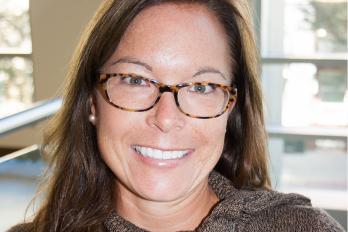Professor Christensen Plenary Speaker at Washburn Law School
November 29, 2012
TJSL Professor Leah Christensen will be the plenary speaker at a conference the weekend of December 1 at Washburn University Law School, in Topeka, Kansas. The conference will be addressing the new “minority” in legal education—those law students who think and learn differently. This is one of the first conferences in the nation to address these issues in the context of legal education.
Considered to be a national expert in this area, Professor Christensen has written several law review articles about empirical studies she has done on law students with ADD, and most recently publishing: Learning Outside the Box: A Handbook for Law Students Who Learn Differently (Carolina Academic Press 2010). Professor Christensen will be speaking to legal educators who want to learn how they can teach more effectively to law students who may process information differently than the traditional law student.
“I was extremely honored to have been asked to give the plenary address at this conference,” said Professor Christensen. “This is a very important issue. Law students with physical and learning disabilities have increased over the past decade. Specifically, in any law school course, there will be 5-10% of students who learn and process information differently than the other 90% of students. A learning disability does not mean a student is less intelligent or won’t make a brilliant lawyer; it just means that they may take in and process information differently. So effective professors need to consider that when they teach their courses.”
Professor Christensen will describe how law professors can make law school easier for all students—by using more visual aids; adding simulations; providing feedback on shorter assignments, etc.
“Some of the most creative human beings in our history have had a learning disability; Michael Phelps, Charles Schwab, Albert Einstein, and Alexander Graham Bell to name a few,” said Professor Christensen. “We need future lawyers who see the world differently—so they can provide alternative solutions to problems.”
